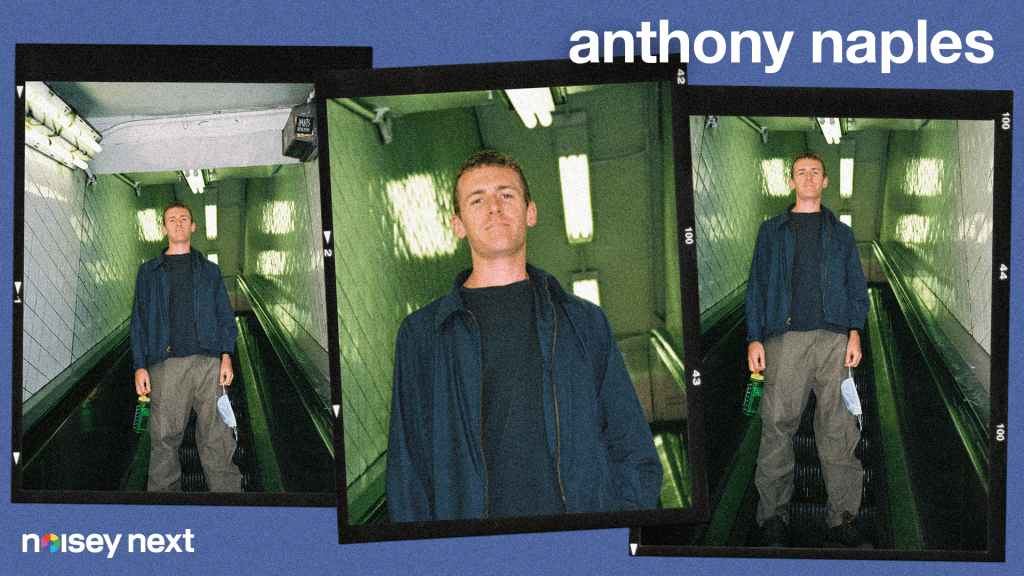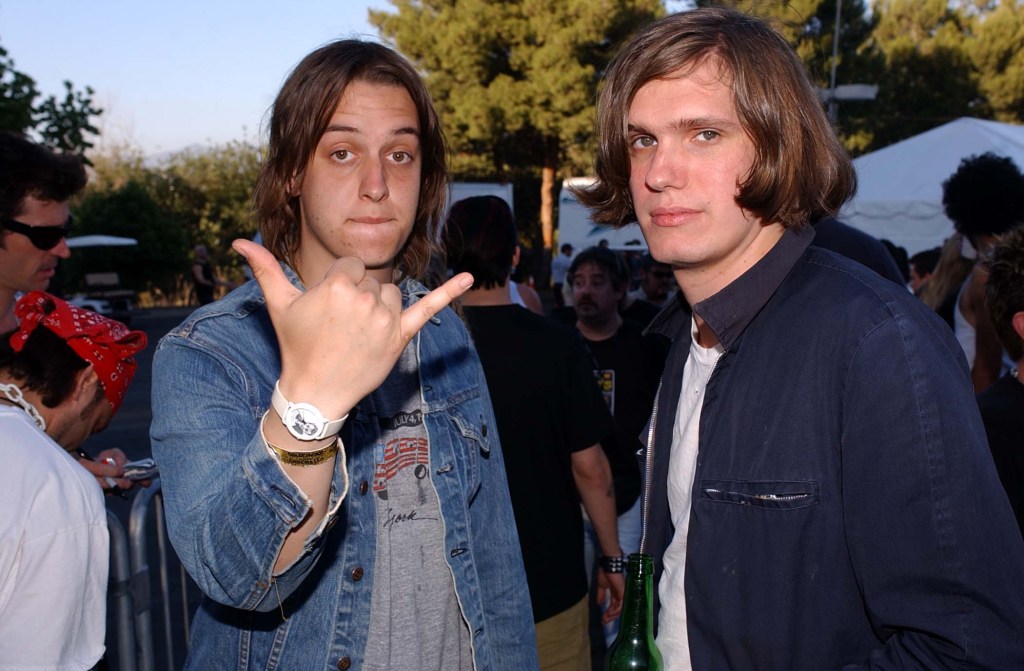“We definitely predated hipsters,” says Diplo of the now-defunct web forum known as the Hollerboard. “It was like a secret club.”
Throughout the 2000s, the Low-Bee board, otherwise known as the Hollerboard, was an online gathering place for DJs, internet nerds, producers and party kids to exchange music, talk shit, party right, hook up, and LOL. It grew from a tiny community that had migrated from other Philadelphia-based indie rock and hip-hop boards, connected with a party called Hollertronix, thrown by a then-relatively unknown Diplo and his good friend, DJ Low-Budget or Low-Bee.
Videos by VICE
“What it did was solidify our scene in Philly and NYC—[party crews like] Hollertronix, The Rub, etc.—very like-minded kids,” Diplo continues. The community that developed around Hollertronix and the Hollerboard would grow to include the future heroes of Mad Decent, Fool’s Gold, and other dance music soon-to-be-behemoths: Nick Catchdubs, Flosstradamus, Dave Nada, Treasure Fingers, Jokers of the Scene, Louisahhh, DJ Sliiink, Four Color Zack, and Spank Rock’s whole posse. It also was the first time you would hear about people like Jacques Greene, Jerome LOL, Rizzla, Bok Bok, or Proper Villains.
Back in the day (the 90s and early 00s), forums like the Hollerboard were where dance music communities came together. In a time before Twitter, Facebook, MySpace (or even EDM), it’s where DJs went to get their likes, share their opinions, and flame their friends. Every scene had its go-to message boards: Drum ‘n’ bass fans had Breakbeat Science and Dogs on Acid (recently re-launched as DOA:Reborn), while sites like TranceAddict, Ravetrash, mnml.nl, and Buzz Board provided outlets for their associate subcultures.
“It was SoundCloud before SoundCloud,” explains the Chicago-based DJ and producer Willy Joy. “The ideas and sounds on that board actively shaped and accelerated the direction of dance music leading up to it’s mainstream acceptance in the USA.”
The board’s original members were brought together by a revolutionary interest in crazy, cross-genre mash-ups, years before “open format” or multi-genre mixing was even a thing. Sure, there were mash-up DJs like Z-trip and 2manyDJs who hit it big early on, but in the early 2000s it was cutting-edge for hip-hop DJs to mix Solid Groove into Elephant Man into David Banner into Rod Lee into The Gossip.
By the mid-00s, an entire style of DJing was bubbling on the East Coast—best captured on Low-Bee’s Never Scared mix—and had come into its own because of the Hollerboard and adjacent forums like Turntable Lab. “I definitely learned a lot about everything,” says New York stalwart DJ Cousin Cole, “from [record label] DanceMania to yacht rock—or as Cosmo Baker calls it, ‘white heat’—to local rap scenes, and especially Baltimore club.”
“My favorite discovery was Curtis Vodka’s ‘Hey Girl,’” says Philadelphia Hollerboard originator Dirty South Joe. “It was an emo Baltimore club rework of a Chris Brown track that I wasn’t up on at the time. I must have played it 20 times in a row immediately after he first posted it.”
The Hollerboard community’s favorite act was Naeem Juwan, aka Spank Rock, whose style, sound, and backing production brought rap music to the club in a way that changed dance music forever. As Spank Rock’s career took off in the late 2000s, he brought word of the Hollerboard with him, and almost every one of its constituents will tell you something like “we owe Spank Rock everything” when reflecting on the Hollerboard’s legacy.
At its peak, the board saw posts from celebrity DJs and producers like Duke Dumont, Bok Bok, Erol Alkan, Teki Latex, Sinden and the late Disco D. Online interactions often turned into offline parties and collaborations, and there were plenty of bookings, label signings, tours, and even sex scandals, that arose from the forum.
“I booked our first shows with promoters who took a risk on me and Low-Bee because of the excitement and buzz of the board,” Diplo explains. “We toured California, Calgary, Australia—I guess it taught me the raw power of the internet to go international.”
Because of the board, a cross-continental network of parties and promoters was able to emerge. There were Hollerboard-affiliated parties in “every city,” says Low-Bee. “It seemed like everyone got their turn to play this place and that place,” he says. “The parties were all influenced by the music being talked about on the Hollerboard.”
A-Trak and Nick Catchdubs of Fool’s Gold (photo by Loren Wohl)
“For people on the board who were actively gigging and making music, it amplified and fed into IRL relationships in a cool way,” says Fools Gold label head Nick Catchdubs. “When you showed up for a gig in a random city, you weren’t playing with strangers—you were playing with friends you’d ‘known’ for years, whether that’s a Four Color Zack in Seattle or a Morse Code in SF.”
New York DJ, rapper, and party promoter Roxy Cottontail tapped the Hollerboard to book acts for her one-off parties and infamous Monday night gigs at Sway in NYC—while also moderating “Jawn Doe,” a girls-only section of the message board. “Everything we are listening to now was pretty much on that board at some point in time,” she says.
“It helped create a real circuit,” Nick Catchdubs continues, “a community that laid the groundwork for what Diplo would grow with Mad Decent, and what A-Trak and myself would grow with Fool’s Gold.”
It wasn’t all hugs and kisses on the Hollerboard, though. With its outspoken and often sensitive membership the board often set off DJ beefs so epic they’re still remembered to this day. Diplo recalls early hot topic threads when there was “a stabbing outside the Hollertronix party at the Ukie Club,” or “when someone tagged my Oldsmobile and we had him beat up by a rival gang.”
Some discussions grew into uncontrollable flame wars about race and gender. Others saw board members ganging up on posters and DJs who had incurred their wrath. Fake accounts were made to harass online enemies. There was plenty of slut-shaming, troll-baiting, and whining about DJs who used relatively new software like Serato and Ableton.
Uffie’s Hollerboard diss trackHollerboard beef even made it onto prime time radio once or twice. “One of the highlights was all the drama between the board and [Ed Banger singer] Uffie,” says Willy Joy. “She was so mad about it that she actually recorded and released an entire song [2007’s “Dismissed”] dissing the Hollerboard by name. To give you an idea of how improbable this was, the modern-day equivalent would be something like Iggy Azalea making a diss song about a small Facebook group. It just wouldn’t happen in this day and age.”
“She told us all to go back to smoking our crack pipe,” Roxy recalls of the song.
With the fragmentation of online platforms, the shifting landscape of dance music culture, and the huge success of many Hollerboard members’ careers, the forum began to disband towards the end of the 00s. “I’m gonna call time of death as 2010,” says Ian Meyer, who moderated the board in its later years. “It limped along in a coma until 2012, and I think it’s now in a vegetative state with minor brain activity.” Today its former URL redirects to an error page.
Anyone recognize this guy in the suit?
The Hollerboard may be gone but it’s not forgotten. In a world where “Express Yourself” and “The Harlem Shake” can go viral within hours, the board will be remembered as a place where talent buyers, prospecitve labels and agents and most importantly fans didn’t care about how many likes your group had. It was pure love and excitement and a tiny internet community made of people who now get Grammy nominations.
“By this point some Hollerboard members have moved on with their lives,” says Willy Joy. “Others have become world-famous DJ superstars. But back then we were all just a group of people excited to find others who felt the same way we did about music. It was really a pure and special time in the history of this little corner of dance music.”
Hollerboard: where are they now?
Watch the Retro-Futuristic Video for Jokers of the Scene’s “This is Newsbeat”
Flosstradamus Turns the Studio into a Mosh Pit
Loiusahhh! is the Queen of French Electro (and French Men)
These guys still got that message board swag:
Ten Things We Learned About Diplo From His Reddit AMAA
A-Trak Just Turned Reddit Into a Comedy Lounge and We’re Still Laughing



